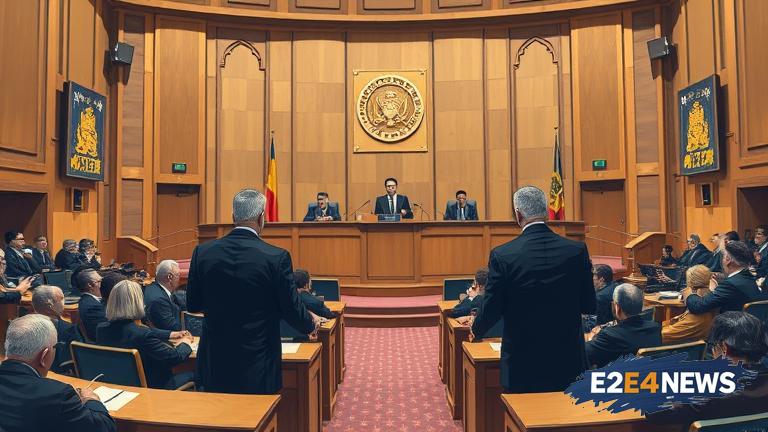The Kosovo parliament has been attempting to constitute itself and elect a new speaker, but the process has been marred by disagreements and uncertainty. The latest attempt to elect a speaker has been unsuccessful, with no candidate able to secure the necessary votes. The post of speaker is crucial in Kosovo’s parliamentary system, as it plays a key role in setting the legislative agenda and facilitating the work of the assembly. The current political climate in Kosovo is complex, with multiple parties and coalitions vying for power. The main parties, including the Vetevendosje movement and the Democratic League of Kosovo, have been unable to reach a consensus on a candidate for the speaker position. Several candidates have been proposed, but none have been able to secure the necessary support. The parliament has been in a state of limbo, with lawmakers unable to proceed with legislative business until a speaker is elected. The international community has been watching the situation closely, with concerns about the impact on Kosovo’s stability and democratic development. The European Union has called for calm and dialogue, urging the parties to work together to find a solution. The United States has also weighed in, emphasizing the importance of a functioning parliament in Kosovo’s democratic system. Despite the challenges, there are hopes that a solution can be found, with some lawmakers expressing optimism about the possibility of a compromise. However, the process is likely to be protracted, with multiple rounds of voting and negotiations expected. The Kosovo parliament has a total of 120 seats, with the Vetevendosje movement holding the most seats. The party has proposed its own candidate for the speaker position, but has been unable to secure the necessary support from other parties. The Democratic League of Kosovo has also proposed a candidate, but has faced opposition from other parties. The situation is further complicated by the fact that some lawmakers have been boycotting the parliament, citing concerns about the legitimacy of the assembly. The boycott has reduced the number of lawmakers present, making it even more difficult to elect a speaker. The parliament has been working to address the concerns of the boycotting lawmakers, but a solution has yet to be found. In the meantime, the work of the parliament remains stalled, with lawmakers unable to proceed with legislative business. The situation is being closely watched by the international community, with concerns about the impact on Kosovo’s stability and democratic development. The EU and US have both emphasized the importance of a functioning parliament in Kosovo’s democratic system, and have urged the parties to work together to find a solution. As the situation continues to unfold, it remains to be seen whether a compromise can be reached and a speaker elected. The coming days and weeks will be crucial in determining the outcome, with the international community watching closely. The parliament’s ability to function effectively will depend on its ability to elect a speaker and proceed with legislative business. The current uncertainty is having a negative impact on Kosovo’s stability and democratic development, and a solution is urgently needed. The parties must work together to find a compromise and elect a speaker, in order to ensure the smooth functioning of the parliament and the continuation of democratic processes in Kosovo.
